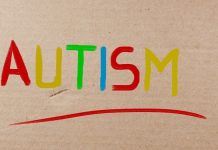Grey’s Anatomy, the long-running medical drama created by Shonda Rhimes, has captivated audiences with its compelling characters and intricate storylines.
One character in particular, Cristina Yang, has garnered attention for her unique personality and behavior.
In this article, we will delve into the question of whether Cristina Yang exhibits traits of autism spectrum disorder, providing a character analysis and exploring the representation of neurodiversity in the TV show.
Understanding Autism Spectrum Disorder
Before diving into the analysis of Cristina Yang’s character, it’s essential to understand autism spectrum disorder (ASD) clearly.
ASD is a developmental disorder characterized by difficulties in social communication and interaction and restricted and repetitive patterns of behavior, interests, or activities.
It is a complex condition that varies widely in its presentation and severity.
Cristina Yang: Grey’s Anatomy Character
Cristina Yang, brilliantly portrayed by Sandra Oh, is a driven and highly intelligent surgeon in Grey’s Anatomy.
Throughout the series, Cristina’s behavior and interactions with others have raised questions about whether she may be on the autism spectrum.
While the show does not explicitly address this, fans and viewers have speculated about her neurodivergent traits.
Cristina Yang’s Potential Autistic Traits
To evaluate whether Cristina Yang exhibits traits of autism spectrum disorder, we can refer to the diagnostic criteria outlined in the DSM-5 (Diagnostic and Statistical Manual of Mental Disorders).
Let’s examine Cristina’s characteristics in relation to these criteria.
Cristina’s Social Communication and Interaction
Deficits in social-emotional reciprocity
Cristina often struggles to form deep connections with others, relying heavily on her close friendship with Meredith Grey.
Her conversations with colleagues and patients can appear more focused on professional matters than building personal relationships.
This difficulty in social reciprocity aligns with a potential autism trait.
Difficulty with nonverbal communication
Cristina demonstrates challenges in interpreting nonverbal cues throughout the show, such as facial expressions and body language.
She may require explicit explanations or direct communication about others’ emotions, which indicates potential difficulties with nonverbal communication.
Difficulty with developing and maintaining relationships
Cristina’s struggle to form lasting and meaningful relationships is evident throughout the series.
She often prioritizes her career over personal connections, finding it challenging to balance emotional intimacy with her professional aspirations.
Restricted, Repetitive Patterns of Behavior, Interests, or Activities
Stereotyped or repetitive motor movements, use of objects, or speech
Cristina does not exhibit stereotyped or repetitive behaviors in the show. This aspect is more associated with severe autism rather than Asperger’s syndrome or high-functioning autism.
B2: Insistence on sameness, inflexible adherence to routines, or ritualized patterns of behavior
Unlike some individuals on the autism spectrum, Cristina does not display a strong inclination toward rigid routines or a need for sameness.
Her character appears more adaptable and flexible in navigating various situations.
Highly restricted, fixated interests that are abnormal in intensity or focus
Cristina’s intense focus and passion for cardiology and cardiac surgery align with this characteristic of autism.
Her unwavering dedication to her specialty suggests an abnormal fixated interest in its intensity and focus.
Hyper- or hypo-reactivity to sensory input
Although the show does not explicitly portray Cristina’s sensory sensitivities, her character does not exhibit clear signs of either hyper- or hypo-reactivity to sensory input.
It is important to note that sensory sensitivities can vary greatly among individuals on the autism spectrum.
Symptoms Must Be Present in Early Development
As Grey’s Anatomy primarily focuses on the characters’ professional lives, the show does not provide significant insight into Cristina’s childhood or early development.
Therefore, it is challenging to evaluate this particular criterion.
Symptoms Cause Clinically Significant Impairment
Cristina’s difficulties in social functioning and forming lasting relationships can be seen as causing clinically significant impairment in her personal life.
Her career-oriented mindset often overshadows her emotional connections, leading to challenges in maintaining healthy social interactions.
Significance of TV Show Representation
The portrayal of characters with autism traits, even if not explicitly diagnosed, can serve as an important representation of neurodiversity in popular media.
Grey’s Anatomy, through Cristina Yang’s character, allows viewers to explore and understand different perspectives and experiences.
By showcasing a character like Cristina, who exhibits traits commonly associated with autism, the show brings awareness to the diversity of human behavior and challenges stereotypes surrounding autism spectrum disorder.
Wrapping it Up
While Grey’s Anatomy does not explicitly state that Cristina Yang is on the autism spectrum, her character exhibits certain traits that align with an autism spectrum disorder.
By analyzing her social communication, behavior patterns, and relationships, we can identify potential indicators of autism.
The show’s representation of neurodiversity through Cristina’s character opens up discussions about autism in popular media and promotes greater understanding and acceptance.
Article Sources
- American Psychiatric Association (n.d.). Diagnostic and Statistical Manual of Mental Disorders (DSM-5-TR). Retrieved August 6, 2023, from https://www.psychiatry.org/psychiatrists/practice/dsm








